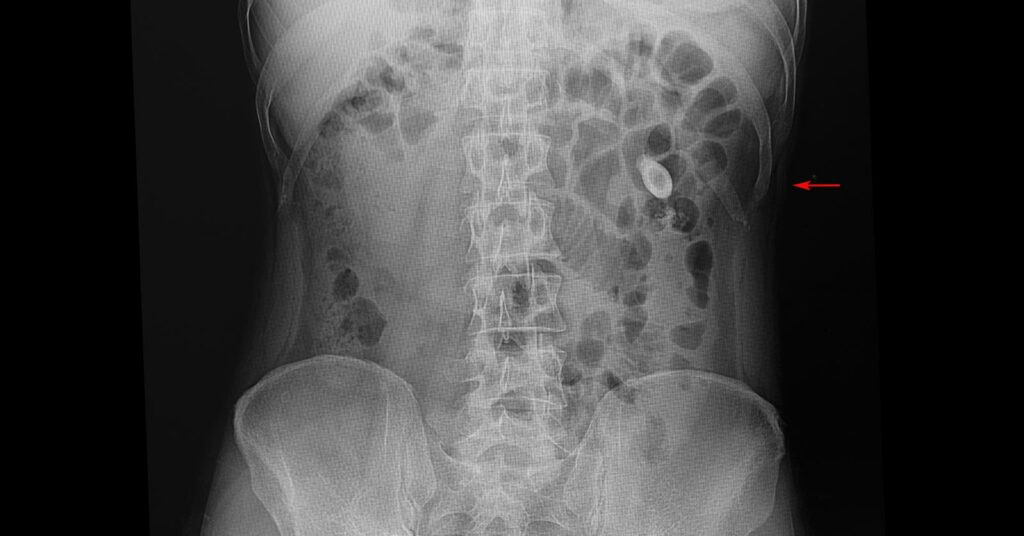
Sometimes, kidney stones can be as small as a grain of sand but some bigger stones can cause trouble in your urine flow along with a lot of pain. In some cases, treatment may be required to break down the stones or remove the ones that don’t pass. (Healthline, 2017) Passing a kidney stone can be painful, but if diagnosed in time, it does not cause a lot of damage.
Types of Kidney Stones
The causes of kidney stones are indicated by the type of kidney stones and help understand ways to prevent more stones in the future. The different type of kidney stones are:
- Calcium Oxalate Stones: Oxalate is a substance made from your liver and also absorbed from our diet as it is found in many fruits, vegetables, nuts and chocolates. Consumption of food with high oxalate, high doses of Vitamin D, intestinal bypass surgery and metabolic disorders can increase the concentration of oxalate in the body which results in these stones.
- Calcium Phosphate Stones: Another type of calcium stone is the calcium phosphate stone, which occurs more in people with metabolic disorders like renal tubular acidosis. It may be linked to certain medicines like topiramate that treat migraine or seizures. (Mayo Clinic Staff, 2020)
- Struvite Stones: These stones form because of urinary tract infection (UTI). An increase of ammonia in the urine occurs owing to the bacteria causing the infection. This results in the formation of struvite stones which can grow very quickly into larger and painful stones.
- Cystic Stones: These stones are a rare type caused by a hereditary issue. The genetic disorder called cystinuria causes the kidneys to excrete too much of an amino acid called cystine into the urine, which leads to the stones. (WebMD, 2020)
- Uric Acid Stones: If you lose too much fluid because of diarrhea or malabsorption or have a protein-rich diet or diabetes or metabolic disorders, you can have cystic stones. (WebMD, 2020) Certain genetic factors also lead to these stones.
Symptoms of Kidney Stones
Smaller kidney stones generally do not have any symptoms unless it moves around in your kidneys or passes into your ureters, the tubes that connect your kidneys to the bladder. Certain symptoms of kidney stones are:
- Severe or sharp pain in the belly (below the ribs), back or side
- Pain or burning sensation during urination
- Urinary urgency
- Blood in the urine which can be detected if your urine is pink, red or brown
- Cloudy or foul-smelling urine
- Nausea & Vomiting
- Fever & chills, in the case of an infection
Conditions that Increase the Risk of Kidney Stones
Certain conditions and lifestyle choices factor into the risk of kidney stones for people. Such people are more prone to developing kidney stones. Some of these factors are:
- Genetic or Personal History: If someone from your biological family has had kidney stones, the chances of having kidney stones increases. If you, yourself have had kidney stones in the past, the risk of developing another is high. (Mayo Clinic Staff, 2020)
- Obesity: Obesity is linked to many diseases including kidney stones. A high Body Mass Index (BMI) and sudden weight gain along with a larger waist size might be linked to an increased risk of developing kidney stones.
- Dehydration: Less consumption of water can increase the risk of kidney stones. People living in hot and dry climates are more at risk of developing these stones.
- Diet & Medication: People with diets rich in protein, sodium or sugar can be prone to certain types of kidney stones. Dietary supplements such as Vitamin C, laxatives, calcium-based antacids and medication used to treat migraines and seizures can also increase the risk of kidney stones.
- Medical Conditions: As mentioned earlier, people with severe diarrhea, bowel inflammatory disease, urinary tract infections, renal tubular acidosis, cystinuria, and other metabolic disorders are more likely to develop kidney stones. People who have undergone gastric bypass surgery are also more at risk of stones.
A healthy diet, keeping a check on your symptoms and proper hydration can help you pass kidney stones easily and prevent the development of kidney stones in the future. While your kidney stone may pass on its own, make sure you consult a doctor in case you suffer from any of the symptoms mentioned, especially before consuming any medication or natural remedies.
Most people with kidney stones will eventually head to the emergency room as the pain can be excruciating. Our board certified ER Physicians and nurses are trained to treat a kidney stone emergency. We have onsite radiology and labs and can diagnose your condition and relieve your pain quickly. We’ll create a plan for next steps and make sure we communicate with your primary care physician or specialist and integrate your emergency care holistically with your overall healthcare.
Works Cited
“Kidney Stones.” Mayo Clinic, Mayo Foundation for Medical Education and Research, 5 May 2020, www.mayoclinic.org/diseases-conditions/kidney-stones/symptoms-causes/syc-20355755
Watson, Stephanie. “8 Signs and Symptoms of Kidney Stones.” Healthline, Healthline Media, 20 Oct. 2017, www.healthline.com/health/symptoms-of-kidney-stones
“What Causes Kidney Stones? 12 Possible Causes.” WebMD, WebMD, 10 Aug. 2020, www.webmd.com/kidney-stones/kidney-stone-causes#3





